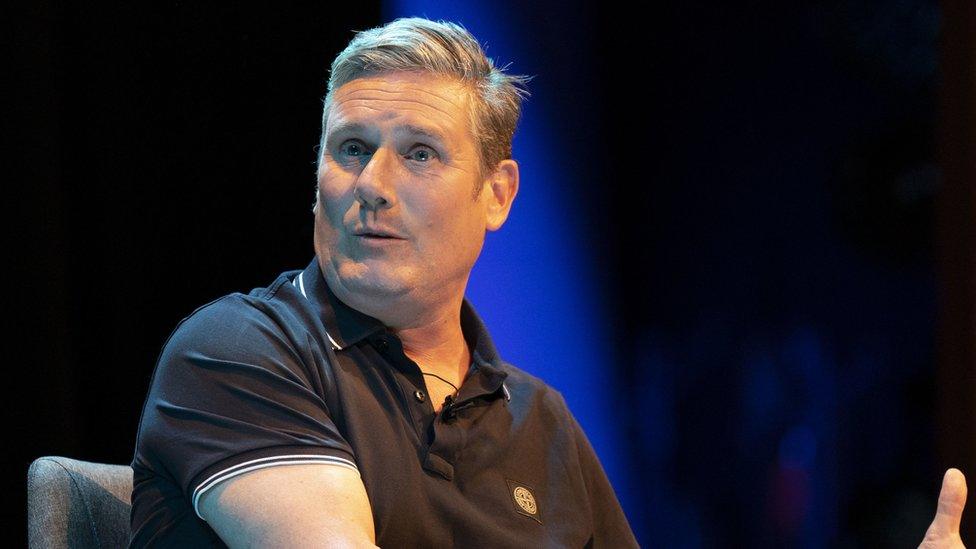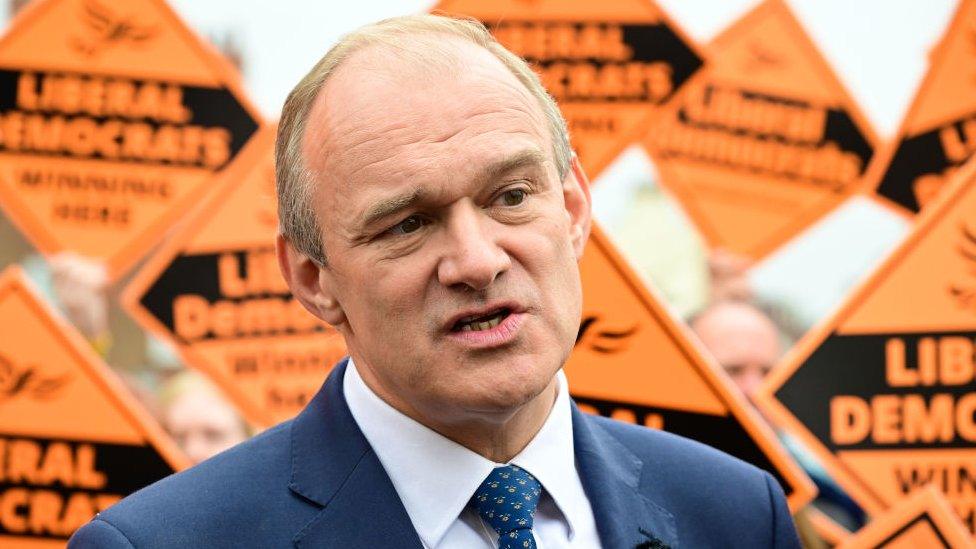Cost of living: Keir Starmer set to call for energy price cap freeze
- Published

Labour leader Keir Starmer will set out his plan to deal with the cost of living crisis in a speech on Monday
Labour is to call for the energy price cap to be frozen this autumn, part of a plan to deal with the cost of living.
Sir Keir Starmer is expected to make the call on Monday, in which he will explain how Labour would pay for the plan if it was in power.
The cap - the maximum amount suppliers can charge customers for average use - is £1,971 a year.
But experts expect it to climb to around £3,500 a year and for every household to see steep rises in bills.
Previously the level of the cap was only reviewed every six months but Ofgem changed the rules this year, meaning that it is expected to rise in both October and again in January.
It has already been announced by the government that all households in England, Scotland and Wales, where the cap applies, will receive £400 to help pay rising fuel bills this autumn.
UK energy regulator Ofgem has said it is possible suppliers could raise customers' direct debits before the new cap comes into effect in October.

What help has already been announced?
All households in England, Scotland and Wales will receive £400 off their fuel bills this autumn - this should be deducted from bills by suppliers
The poorest will also get £650 in their bank accounts to help with the cost of living - expected to cover eight million households. This comes in two halves - one should have been paid in July, the other will come in the autumn
There will be a separate £300 payment to help pensioners - also expected to assist eight million households
And there will be a £150 payment for six million people receiving non-means tested disability benefits

In the speech on Monday, Sir Keir is set to lay out a plan calling for the price cap to remain where it is.
There are no details ahead of the speech on how Labour would fund the freeze, first reported in the Observer, external, while a source from the party said they would not comment ahead of the speech.
But writing in the Sunday Mirror, external, Sir Keir said Labour has a plan that "meets the scale of this crisis" and he added the party would tax "the oil and gas producers making huge profits".
Earlier this month, BP reported its biggest quarterly profit in 14 years - $8.45bn (£6.9bn) - while Shell posted a record profit of $11.5bn (£9bn).
The current windfall tax of 25% - called the energy profits levy - was introduced in May and applies to oil and gas firms, but there has been speculation about extending it to electricity generators.
A windfall tax is a charge imposed by a government on a company, designed to target firms that have benefited from circumstances they were not responsible for.
The current levy is expected to raise £5bn in the first year, external with the legislation due to expire by December 2025.
Sir Keir wrote: "We would end the injustice that sees people on prepayment meters paying over the odds for their energy.
"And we will set out how we would help people directly this winter in the coming days."
Rishi Sunak and Liz Truss, both vying for the Conservative leadership, have outlined their own plans on how they would tackle the cost-of-living crisis if they become prime minister.
Mr Sunak said he would offer specific support to pensioners and those on benefits, while Ms Truss has promised several tax cuts, including on national insurance contributions and green levies on energy bills.
The Lib Dems have already called for the price cap rise to be scrapped, arguing that the cost could be covered by expanding the windfall tax on energy company profits.
Former Labour prime minister Gordon Brown has also called for a price cap freeze and temporary nationalisation of energy companies that refuse to offer lower bills.
The energy price cap is designed to protect consumers from short-term price changes. It is adjusted every three months and is based on the price energy suppliers themselves pay producers for electricity and gas.
Related topics
- Published11 August 2022

- Published9 August 2022
